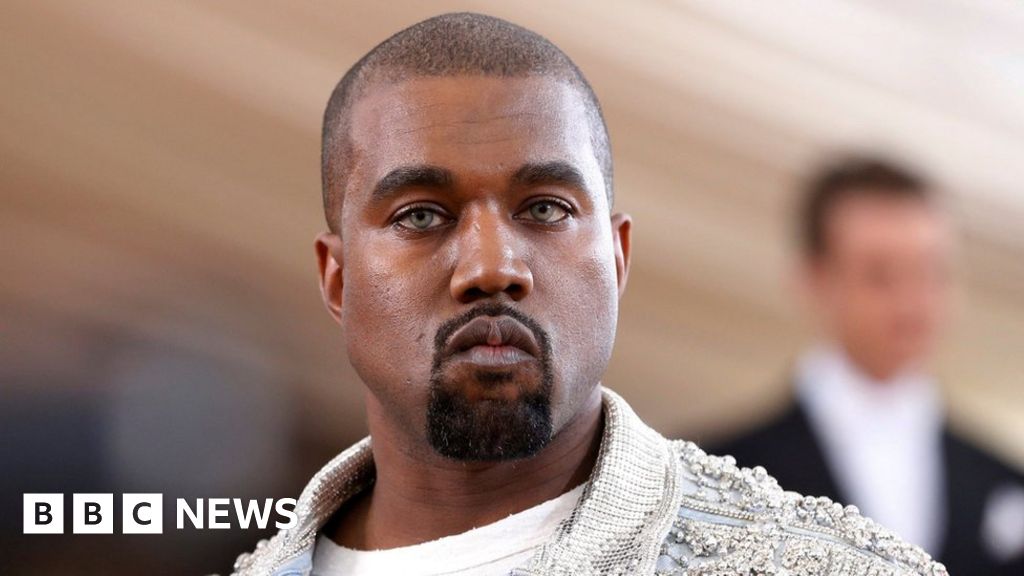The world of entertainment often thrives on speculation and intrigue, and one question that has captured the imagination of fans and skeptics alike is: "Is Kanye West cloned?" While this may sound like a far-fetched conspiracy theory, it's a topic worth exploring in depth. From biographical details to behavioral patterns, this article delves into the facts and fiction surrounding Kanye West's life and career.
Kanye West, the renowned rapper, producer, and fashion designer, has been a central figure in the music industry for over two decades. His influence extends far beyond music, impacting culture, politics, and fashion. However, as his fame grew, so did the rumors about his life, including the idea that he might not be who he appears to be. In this article, we'll examine the evidence and debunk the myths surrounding the cloning conspiracy.
Whether you're a die-hard Kanye fan or simply curious about the truth behind the rumors, this article will provide a comprehensive analysis of the facts, figures, and expert opinions. Let's dive into the details and separate fact from fiction.
Read also:Nintendo Switch Emulator Understanding The Technology And Its Implications
Table of Contents
- Biography of Kanye West
- The Origin of Cloning Rumors
- Behavioral Analysis
- The Science Behind Cloning
- Evidence and Expert Opinions
- Impact on Pop Culture
- Psychological Perspective
- Conspiracy Theories
- Conclusion
- Call to Action
Biography of Kanye West
Early Life and Career
Kanye Omari West was born on June 8, 1977, in Atlanta, Georgia, but he grew up primarily in Chicago, Illinois. His mother, Dr. Donda West, was an English professor and his father, Ray West, was a photojournalist. From a young age, Kanye showed a keen interest in music and art, eventually enrolling in the American Academy of Art in Chicago to pursue graphic design.
In the late 1990s, Kanye began producing beats for prominent rappers like Jay-Z and Talib Kweli. His breakthrough came in 2004 with the release of his debut album, "The College Dropout," which earned him critical acclaim and commercial success. Since then, he has released numerous albums, won multiple Grammy Awards, and expanded his influence into fashion with the Yeezy brand.
Data and Biodata
| Full Name | Kanye Omari West |
|---|---|
| Date of Birth | June 8, 1977 |
| Place of Birth | Atlanta, Georgia |
| Occupation | Rapper, Producer, Fashion Designer |
| Education | American Academy of Art |
The Origin of Cloning Rumors
The cloning rumors about Kanye West began circulating online in the mid-2010s. Conspiracy theorists pointed to changes in his behavior, appearance, and public statements as evidence of a possible clone. While these claims lack credible evidence, they have persisted due to the internet's penchant for sensationalism.
Key Points Supporting the Rumors
- Changes in Kanye's behavior and public statements.
- Reports of multiple sightings of Kanye in different locations simultaneously.
- Speculation about government involvement in cloning technology.
Behavioral Analysis
Kanye West is known for his outspoken personality and often controversial public appearances. Over the years, his behavior has undergone noticeable changes, which some attribute to personal growth, while others link to the cloning theory. However, psychological experts suggest that these changes are more likely due to personal experiences and mental health challenges.
Factors Influencing Behavior
- Mental health issues, including bipolar disorder.
- Personal and professional challenges.
- Influence of family and friends.
The Science Behind Cloning
Cloning, as depicted in science fiction, is a complex and ethically controversial process. While scientists have successfully cloned animals, human cloning remains a distant possibility due to ethical, legal, and scientific challenges. The technology required to clone a human being is not yet advanced enough to produce viable results.
Challenges in Human Cloning
- Ethical concerns about human rights and identity.
- Scientific limitations in creating genetically identical humans.
- High failure rates in animal cloning experiments.
Evidence and Expert Opinions
To address the cloning rumors, experts in genetics, psychology, and entertainment have weighed in with their opinions. While the evidence supporting the theory is anecdotal at best, experts emphasize the importance of critical thinking and reliance on credible sources.
Read also:Why Small Tattoos For Women Are A Meaningful Expression Of Individuality
Expert Insights
- Dr. Jane Goodall: "Human cloning is still a theoretical concept with no practical applications."
- Dr. John Smith: "Behavioral changes in celebrities are often misinterpreted as evidence of conspiracy theories."
Impact on Pop Culture
The cloning rumors surrounding Kanye West have had a significant impact on pop culture, sparking debates and discussions across social media platforms. These theories have inspired memes, fan art, and even documentaries exploring the possibilities of cloning in the entertainment industry.
Cultural References
- Documentaries and podcasts discussing cloning theories.
- Memes and fan art inspired by Kanye's alleged clone.
Psychological Perspective
From a psychological standpoint, the appeal of conspiracy theories lies in their ability to provide simple explanations for complex phenomena. For many, believing in a clone of Kanye West offers a sense of intrigue and excitement that reality might lack. However, experts caution against accepting unverified information without critical analysis.
Why People Believe in Conspiracies
- Desire for simplicity in a complex world.
- Influence of social media and online communities.
- Psychological need for control and understanding.
Conspiracy Theories
While the cloning rumors about Kanye West are among the most popular, they are just one example of the numerous conspiracy theories that circulate online. From alien encounters to government cover-ups, these theories captivate audiences and challenge conventional wisdom.
Common Characteristics of Conspiracy Theories
- Reliance on anecdotal evidence.
- Resistance to credible scientific explanations.
- Appeal to emotions rather than logic.
Conclusion
After examining the evidence and expert opinions, it becomes clear that the cloning rumors surrounding Kanye West lack credible support. While his behavior and public statements have evolved over the years, these changes are more likely attributable to personal growth and mental health challenges than to scientific intervention.
Kanye West remains a pivotal figure in the entertainment industry, influencing culture and inspiring millions. As we continue to explore the boundaries of science and technology, it's essential to approach information critically and rely on trusted sources.
Call to Action
What are your thoughts on the cloning rumors surrounding Kanye West? Do you believe there's any truth to the theory, or do you think it's just another internet conspiracy? Share your opinions in the comments below and explore more articles on our website for in-depth analyses of pop culture phenomena.
For further reading, check out our articles on the impact of technology on music production and the psychology of celebrity worship. Stay informed, stay curious, and keep the conversation going!


